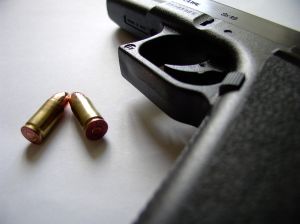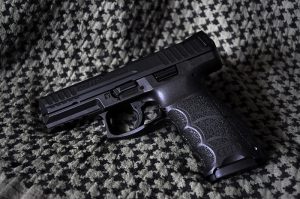Despite Illinois’ recent enactment of its concealed-carry gun law, some gun rights advocates are still not happy – and, they are taking their dissatisfaction to federal court. In a motion filed earlier this month by Mary Shepard, and backed by the Illinois State Rifle Association, she asserts that having to wait several months for the permit process to be outlined is an unjustified abridgment of her Second Amendment rights. Shepard, a gun owner from Cobden, Illinois, was 69 at the time she was brutally attacked (along with her 83-year old coworker) and left for dead by Willis Bates, a paroled felon, as he burglarized the First Baptist Church where she worked. As a result, she argues that had she been able to carry a gun at the time of the incident (back in 2009), she would have been able to thwart the attack and protect herself.

By way of background, the new law was passed on July 9, despite Governor Pat Quinn’s rather vehement objections, barely meeting the deadline set by the 7th Circuit Court of Appeals to create the legislation. Pursuant to its terms, Illinois State Police are charged with the responsibility of setting up a permit program before concealed-carry applications can be submitted. Specifically, the police have 180 days with which to complete this process, and an additional 90 days to process the application forms that they receive. As a result, Shepard and several other gun rights advocates feel that the aforementioned timeframe is way too long and perpetuates Illinois’ long-standing gun ban until the permit process is up and running. In her court filing, Shepard provides that “the delay proposed by the state constitutes an unacceptable perpetuation of the defendants’ infringement of the Second Amendment rights of Ms. Shepard and the other law-abiding citizens of the state of Illinois”, and further insists that “no Wild West anarchy would ensue” if the U.S. District judge, the Honorable William Stiehl, ruled in her favor.
In response to Shepard’s arguments, the State of Illinois has fired back, stating that her case is completely moot and therefore, should be dismissed. According to the State, it asserts that the law provides Shepard with what she wanted all along – the right to conceal and carry a gun. Moreover, it further argues that the timeframe allotted to the Illinois State Police to develop the permit program should be allowed to run its course. Notwithstanding both the State and Ms. Shepard’s respective positions, no hearing date has been set by Judge Stiehl to rule on the matter.
Continue reading
 Gun control laws have been in a considerable state of flux for many years. Although in Illinois you are allowed to exercise your second amendment right to possess a firearm for self-defense, many still get in tangles with the law (see here for details on what warrants a charge of an unlawful use of a firearm or here for details regarding more serious affairs).
Gun control laws have been in a considerable state of flux for many years. Although in Illinois you are allowed to exercise your second amendment right to possess a firearm for self-defense, many still get in tangles with the law (see here for details on what warrants a charge of an unlawful use of a firearm or here for details regarding more serious affairs). Chicago Criminal Lawyer Blog
Chicago Criminal Lawyer Blog




